Did you know you’d need a phD to be a curator in a London art gallery? I found out the summer I turned 16 because I tried applying for the position. I thought it was about picking where to hang art because it would look nice. Turns out, you need to dedicate over a decade of your life to studying art history because you’re actually curating culture by excluding what doesn’t make the cut.
It’s very similar to the skill set of news editors. Because you’ll need to exclude what doesn’t make the cut in the agenda and culture of the day. And what doesn’t make the cut, doesn’t exist in our imaginations.
Here’s what BBC news have chosen to be the most important to me, and you, if you live in Britain.
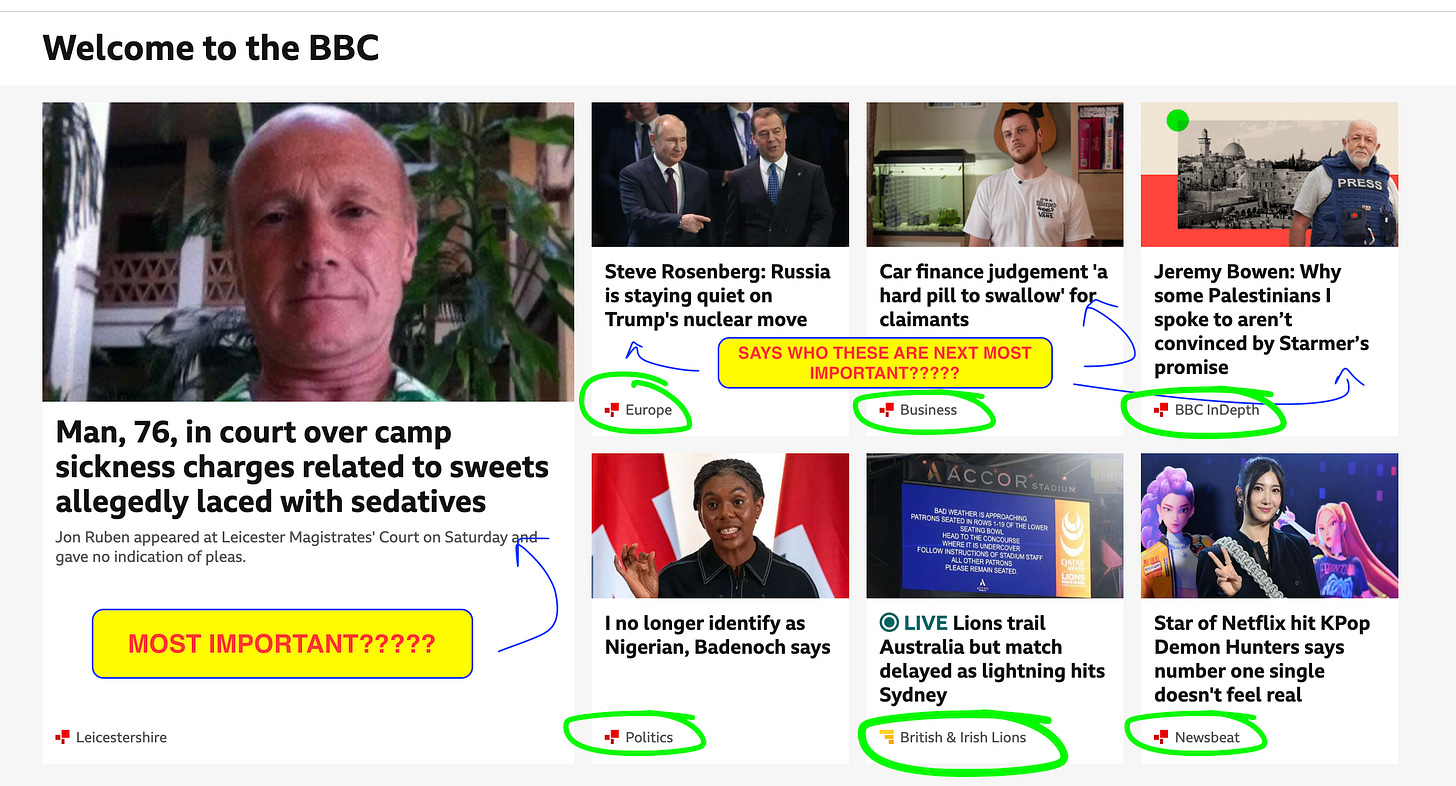
Surely we don’t have to adopt their priorities without questioning? And to do so for years and years means that we’ve got their priorities down as ours without ever thinking about it. So it’s probably time to think about it, and curate.
What do I mean “Curate”?
I mean just like walking through an art gallery. A better approach might be to ACTIVELY pick what goes where in our mind. And if you think about it, it’s wild that this is decided for any if us by a news site, or any other media. Especially when you consider who owns these media corps.
“Just 3 companies – DMG Media, News UK and Reach – dominate 90% of the UK’s national newspaper market.”
That means, in the UK, 3 companies are deciding what’s important everyday.
They’re called “Top stories”. But they don’t have to be “top” to you.
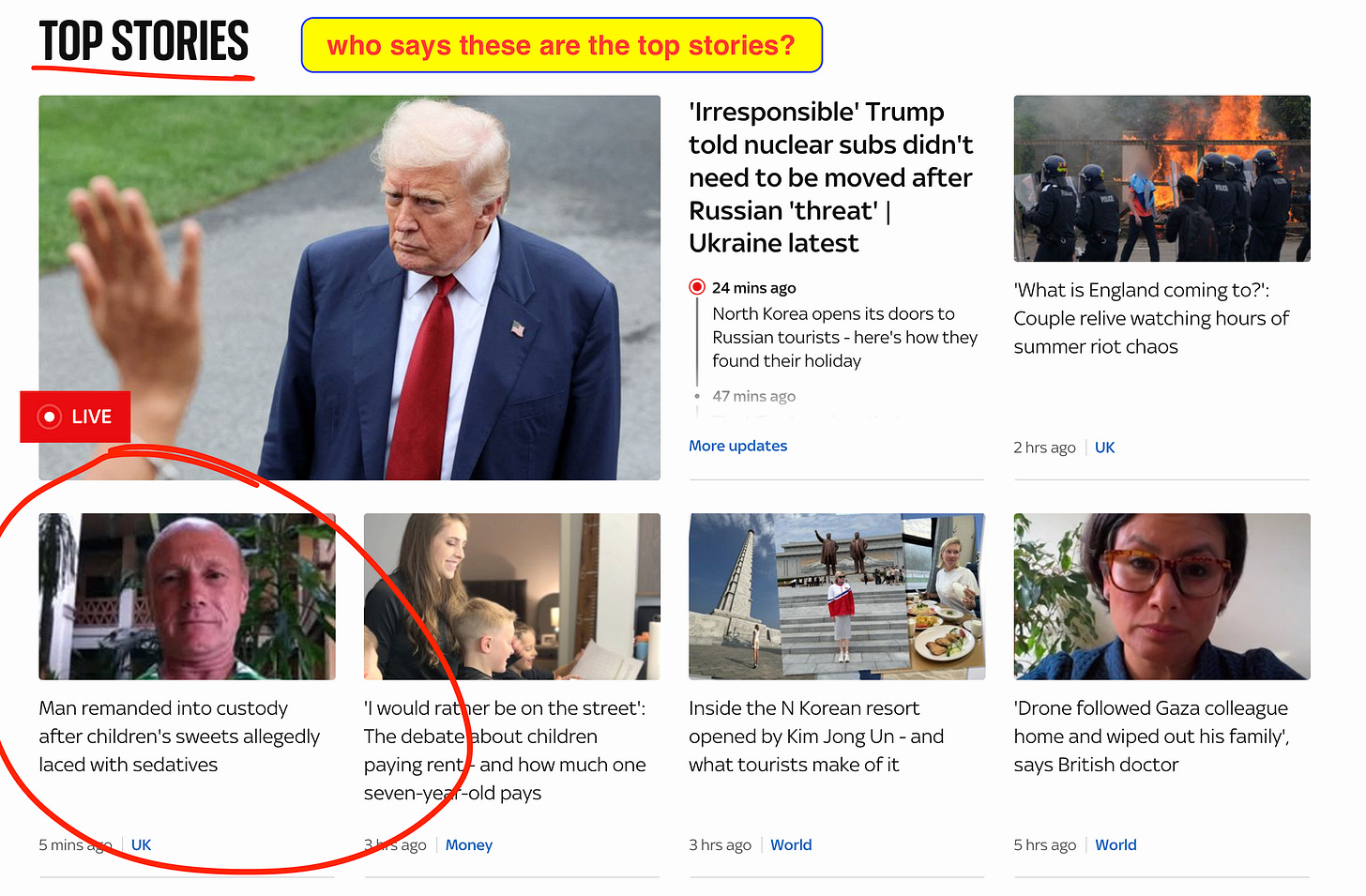
“But I don’t read these newspaper sites.”
They know, and that doesn’t mean you’re escaping the culture curators.
Whether it’s algorithm or a newspaper, you’ll need your BS detector on HIGH as you’re consuming. Start with questions.
Is the most important thing to you really Blake Lively’s court case with that guy, what’s his name? And if you’re thinking, that’s soooo last month. You’re proving my point.
Your neighbour’s breakfast is objectively more important to you than what happens to Blake Lively.
I’ll say it again, do not let others decide what is your priority and what isn’t. This is how we become obsessed by transient situations and unfazed by the things that will impact lives of fellow humans.
Here’s how media and marketing pros think we operate.
they curate media and topics of conversation + news
we see them
we adopt these as our important truths
Not because they’re SUPERB at curation, but because it’s easier for us to consume without thinking. We’re pre-occupied. So here’s how to (simply) pick your own mental priorities and GUARD THEM.
It starts with questioning who gets to be included and who gets to be excluded from your front page.
Step 1, be aware of what’s NOT there
That’s the first act of rebellion, and it sounds EXHAUSTING already. I know. But hear me out, it’s easier than it sounds.
Take for granted that for every platform / outlet, they will bury the information that wont serve their agenda in the near + far future.
So, we already know;
they aren’t reporting the famine + forced displacement in Sudan - likely because they had a part in causing it.
they will not talk about the “conflict” in the Congo, likely because they cannot leverage this for their benefit unscathed.
Not to mention the muted reporting of the oppression of the Uyghurs, those in Burma, and the list will go on…
It does NOT mean that these events are not catastrophic, huge and impactful. It means that they do not want us to think of these as our priorities.
Therefore, it’s a mistake to rely on these “unbiased” news outlet to help prioritise what is important.
Observe what’s put in front of you only as “Their chosen priorities for today”.
Step 2, question the story they’ve presented
The easiest way I’ve found to do this is to just assume that you SHOULD reject the chosen narrative of the day. It’s a simple switch. Just have your default setting to “I assume there is BS or a distraction tactic here”.
There are multiple ways to question what’s written. From emotionally charged language to the amount of space a story takes up. Question the things they have presented to you as you are consuming them. Here’s an article I wrote with an example. Read it after you’re done here - OBVIOUSLY!
NOTE!
Just because it’s not front page news, it doesn’t mean it’s not reported. In fact, some of the most important pieces of information are hidden at the end of reports. So, read beyond the first page to get to the information. Read right through their emotional rage bate to get a more clear understanding of what happened.
Here’s a great video on how the BBC hid some of the most ludicrous use of language in one of their articles.
Step 3, Seek what you CARE to know, apply step 2 liberally
So you know I don’t mean “actively ignore news and pop culture”.
I mean don’t be consumed by it.
Especially if you didn’t put it there.
I would advise sitting by yourself and figuring out what you actually care about. And have a couple of topics you seek out and pursue because you want them to live in your mind on purpose. This can be arts, culture, finance, literally whatever. But curating means you’re ensuring that this is the majority of what you consume and that you are aware that you set this list of priorities.
This pre-selection of interests sounds basic, but it is a shortcut to excluding what you do not want in your brain once it makes its way to your eyeballs.
I uploaded a helpful video about the filter to apply. It features 3 questions:
Is this true?
Who benefits from me believing this?
Does this thought have a harmful impact on me / others?
Also, for the sake of completeness, seek out what you want beyond the screen. Consume books, go out and look at real things. Have hobbies and live widely. I feel like we all need constant reminders and “touching grass” isn’t a complete enough version of this.
Really discern what should live in your internal mind palace.
Be precious about your internal gallery of thoughts
More gallery, less hoarder home.


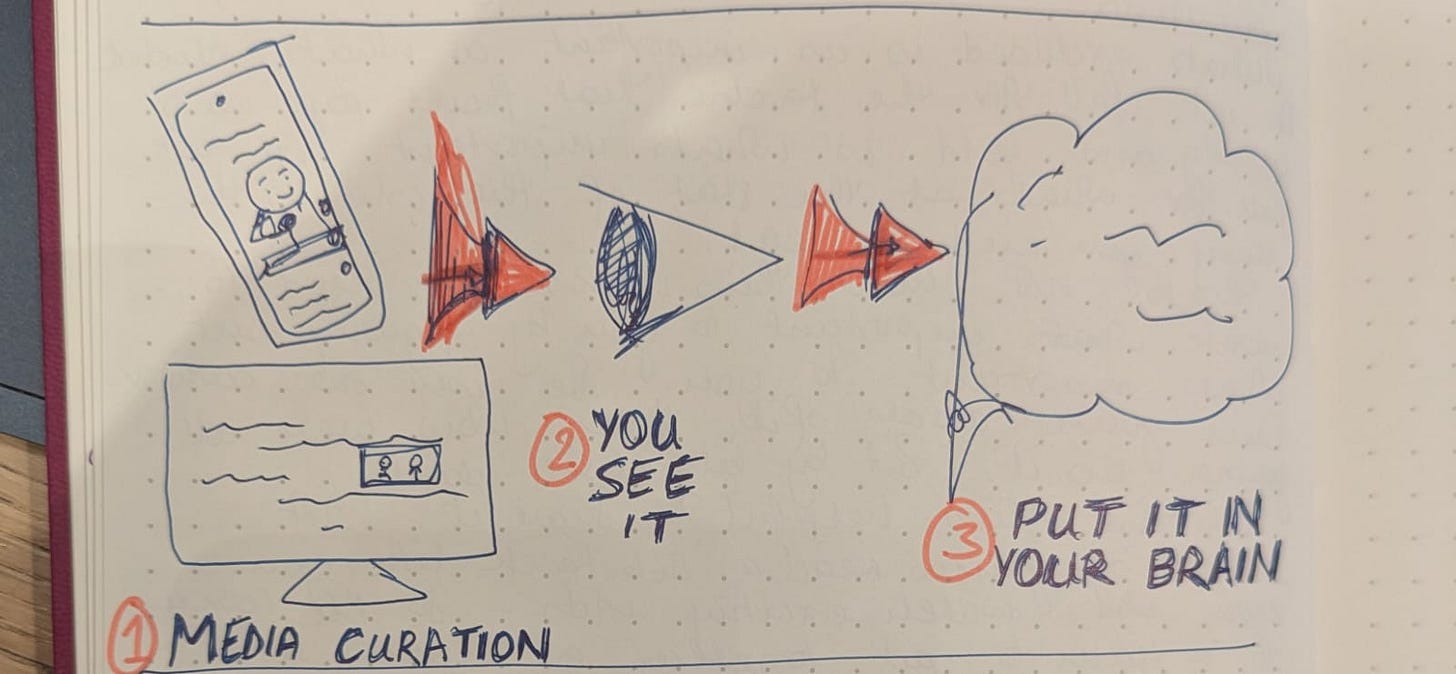
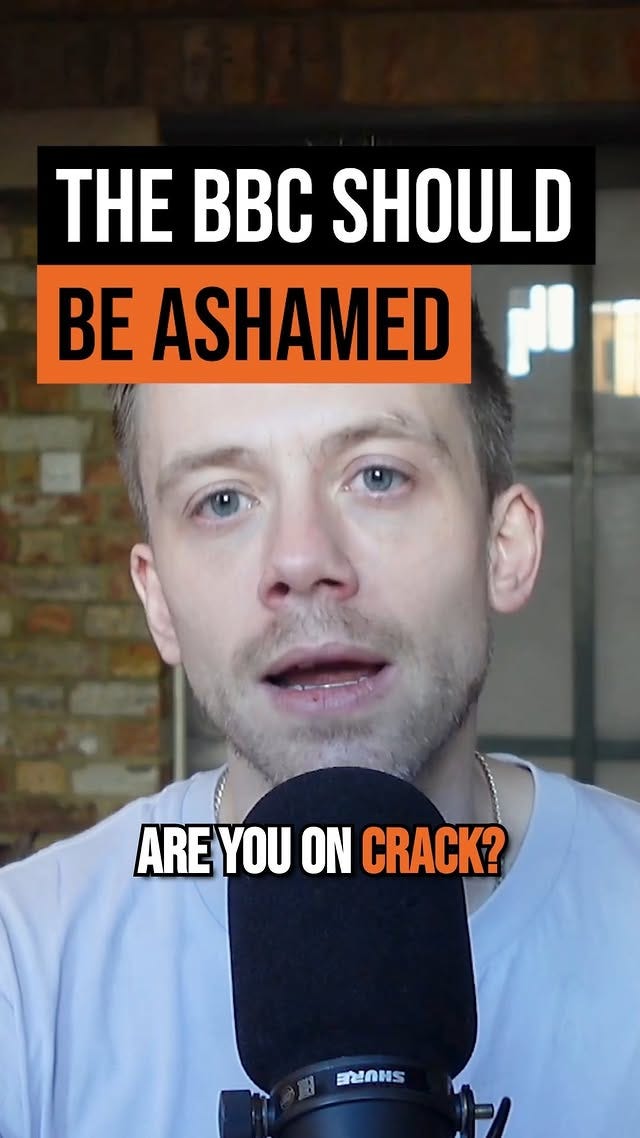
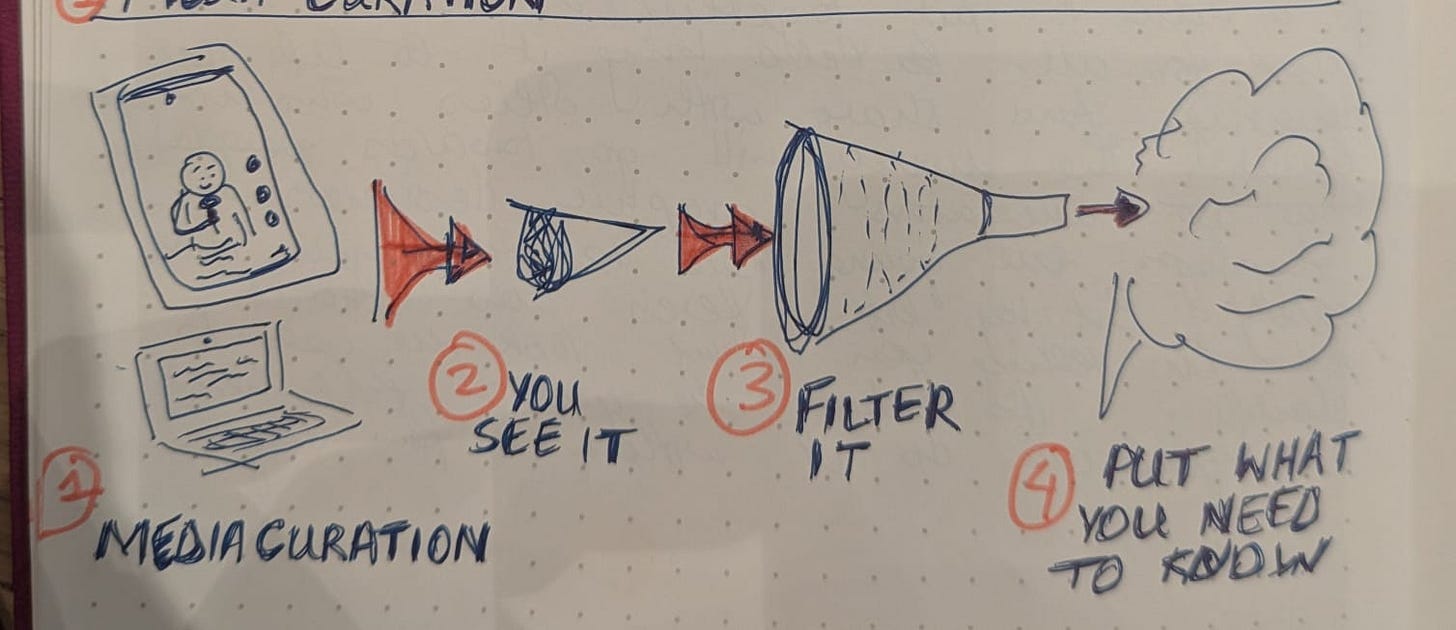
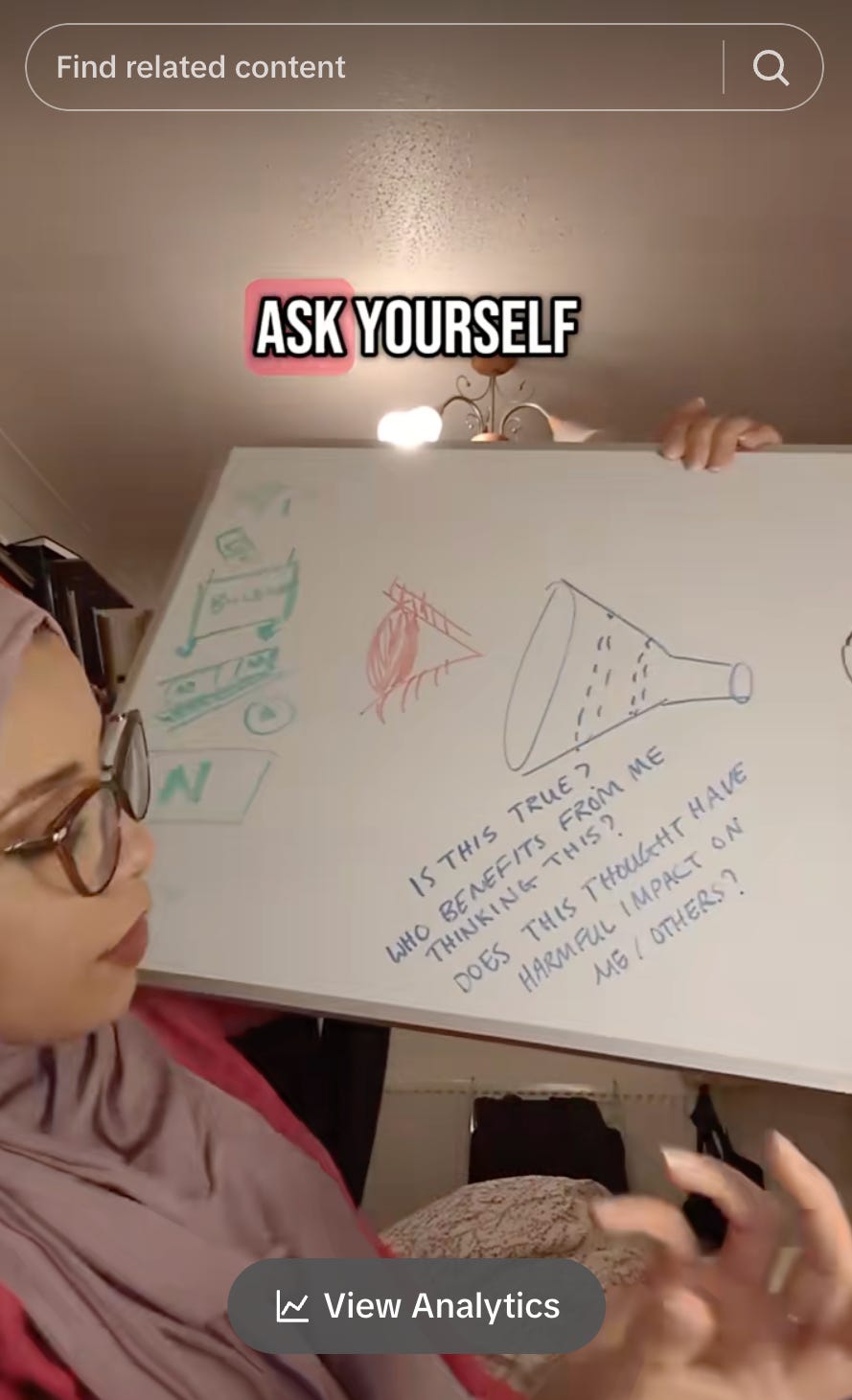
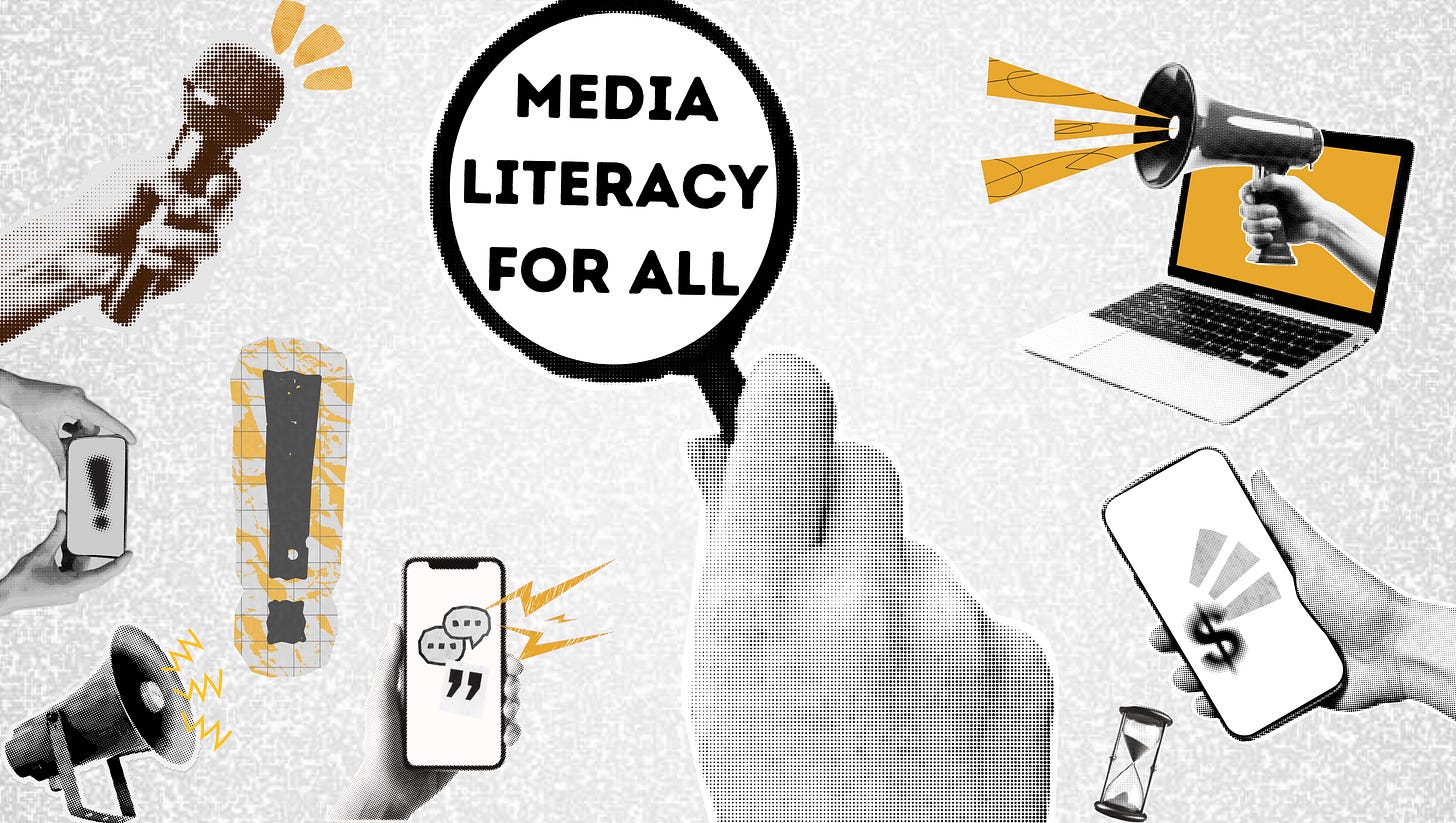
This is exceptionally written and needs to be spoken about more!
Thank you for sharing 🙏🏽
Thank you for doing this work! I am having some thoughts in reference to one of the videos you shared by @/owenjonesjourno
I was considering the implications of the phrase
"are you on crack?"
I am in no way attempting to discredit your claims and teaching but I wanted to sit with the phrase for a moment and I briefly wrote some thoughts down in my notes app.
Even when used against/to berate those in power it equates highly immoral and inherently violent behaviour with drug addicted individuals, who are often victims of circumstances placed upon them by the very people we might be using the term to ridicule. I feel that the majority of the population does not view these people through an empathetic lens and generally our perceptions of drug addict persons has not shifted very greatly despite the rise in cultural awareness. So I began asking myself some questions...
What does this say about the way we stigmatize these individuals' mental state? What are the effects of those (often times passive) thoughts.
What are our pre conceived notions/ assumptions about the behaviour of drug addict people and their motivations?
Who does this language benefit ?
Does it amplify our reliance on carceral logics ?
What does this language reinforce about the prevailing, pre-existing narratives attributed to already marginalised Black and Brown people?
Thanks again for teaching us about the importance of language and how to actively use our critical analysis skills, big fan of your work and what you do!